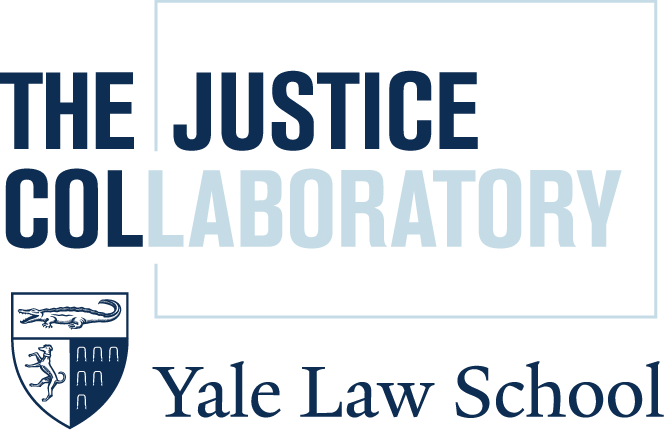Director of Research - CONNECT Project
The Justice Collaboratory is an interdisciplinary group of scholars at Yale University and beyond, led by Professors Tracey Meares and Tom Tyler. Our goal is to apply the latest ideas in the social sciences to inform policy and institutional design. Historically, much of our work has involved researching public trust in legal authorities and the popular legitimacy of the criminal legal system.
We are currently inviting applications for a passionate and detail-oriented Director of Research to join our CONNECT (CT Community Engagement Training) Project team. The CONNECT Project is a statewide, mandated police training focused on procedural justice, implicit bias, and reconciliation, which seeks to enhance trust and engagement between communities and local police departments. Training will be implemented in police departments within New Haven, Bridgeport, and Hartford (along with departments in the surrounding areas). In this project, community members in the participating towns will be involved in a process to offer insights on the police training (i.e. via focus groups or surveys) to better inform the training from a community perspective.
Position Summary: The Director of Research will be responsible for designing, conducting, and managing a comprehensive research project aimed at assessing community perceptions of a police training program implemented under the CONNECT Project. The role involves the development of qualitative and/ or quantitative research instruments, data collection and analysis, and dissemination of findings to inform policy and practice. This is a unique and exciting opportunity to contribute to groundbreaking research and innovative changes in policing policies and practices in the state of Connecticut.
Key Responsibilities:
Research Design and Planning:
Develop research instruments, including surveys and focus group protocols, to gather community feedback on police training programs.
Identify and define research objectives, goals, and questions.
Ensure research methodologies align with best practices in qualitative and quantitative research, emphasizing procedural justice, community trust and engagement, and reconciliation.
Data Collection and Analysis:
Oversee data collection, ensuring ethical standards and confidentiality.
Utilize software tools such as MAXQDA, Tableau, or NVivo for data coding and analysis.
Analyze data to derive insights into community perceptions, pinpointing trends and themes that inform the training program's effectiveness.
Research Implementation:
Facilitate collaboration with project manager, community partners, law enforcement agencies, and other relevant entities.
Outreach to community organizers and recruitment of research participants.
Monitor project progress to ensure adherence to timelines and milestones.
Reporting and Dissemination:
Prepare detailed research reports, executive summaries, and policy briefs that synthesize findings and recommendations.
Present research findings to diverse stakeholders, including academic audiences, community leaders, and policymakers.
Contribute to and publish results in peer-reviewed journals and conferences.
Timeline & Milestones: This project is planned to span a period of 2.5 years, divided into key phases as follows:
Phase 1: 1/1/2025 - 12/31/2025
Research Instrument Development: Design and develop surveys and focus group protocols.
Community Outreach: Engage with community partners to build relationships and gain support for the research project.
Phase 2: 1/1/2026 - 12/31/2026
Active Recruitment: Identify and recruit participants from the community to ensure diverse and representative samples.
Research Implementation: Conduct community-focused surveys and focus groups.
Data Analysis: Begin preliminary analysis of collected data, using appropriate qualitative and quantitative methods.
Phase 3: 1/1/2027 - 6/30/2027
Completion of Data Analysis: Finalize the analysis of all collected data, ensuring comprehensive evaluation and interpretation.
Composition of Final Reports: Assist in writing detailed final reports, executive summaries, and policy briefs to disseminate findings and recommendations.
Qualifications:
PhD or equivalent in Sociology, Criminology, Public Policy, or a related field.
Extensive experience in social science research, specifically in areas related to community relations and law enforcement.
Proficiency in qualitative and quantitative research methods and data analysis tools.
Excellent communication skills, capable of articulating complex information to diverse audiences.
Ability to work independently and collaboratively.
Commitment to ethical research practices and cultural sensitivity.
Preferred Qualifications:
Extensive experience leading qualitative and/ or quantitative research projects.
Experience in research related to police training programs or community-police relations.
Familiarity with procedural justice, police reform, community policing, and accountability strategies.
This is a full-time, 2.5-year contractual position located in New Haven, CT. Salary is competitive, and we offer top-tier employee benefits.
Candidates should submit a cover letter explaining their interest in this position (of two pages or less), a CV, and full contact information for three references. Please collate these documents into a single PDF file. Applications should be addressed to Caroline Nobo and sent to the care of our project manager, Ms. Jania Stewart-James (jania.stewart-james@yale.edu) no later than January 31, 2024. Applications will be considered on a rolling basis.
Select candidates will be asked to submit a writing sample, academic transcripts, and reference letters.
Yale University considers applicants for employment without regard to, and does not discriminate on the basis of, an individual’s sex, race, color, religion, age, disability, status as a veteran, or national or ethnic origin; nor does Yale discriminate on the basis of sexual orientation or gender identity or expression. Title IX of the Education Amendments of 1972 protects people from sex discrimination in educational programs and activities at institutions that receive federal financial assistance. Questions regarding Title IX may be referred to the University’s Title IX Coordinator, at TitleIX@yale.edu, or to the U.S. Department of Education, Office for Civil Rights, 8th Floor, Five Post Office Square, Boston MA 02109-3921. Telephone: 617.289.0111, Fax: 617.289.0150, TDD: 800.877.8339, or Email: ocr.boston@ed.gov.
